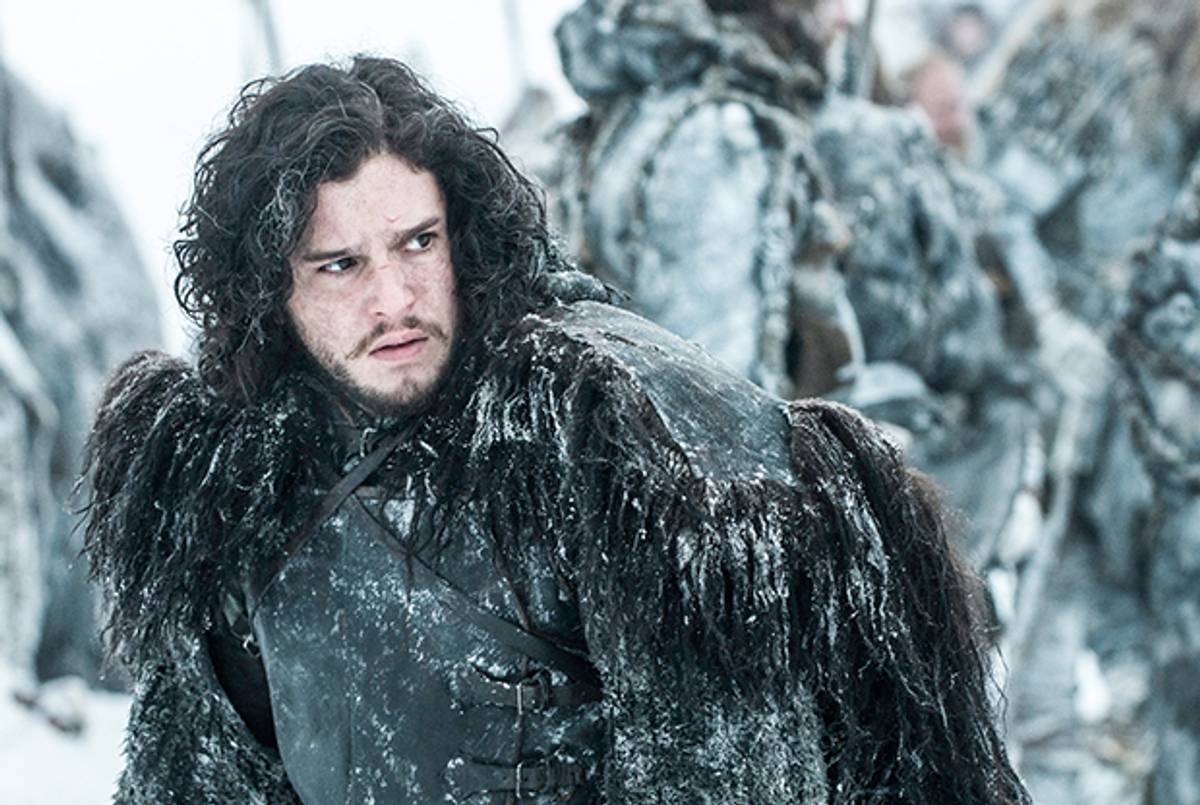
Look, I love Game of Thrones, you love Game of Thrones, everyone in America loves Game of Thrones, at least judging from the amount of ink, real and virtual, spilled over HBO’s sprawling and ambitious fantasy series. People—at least the kind of people I know—routinely discuss their imaginary “sigils,” and in which great house their personality is most suitable for membership. (I’m a Tyrell, my watching buddy and I agree, while my husband is clearly a Greyjoy). We obsessively pore over blogs and fan theories, and spend hours playing A Song of Ice and Fire trivia games on the computer when we could be doing something productive, like playing Candy Crush.
And yet, the show’s fifth season, which premiered on April 12, has left even its most hard-core super-fans in a state of heightened consternation. For the first time since the show premiered, the patience to wade through thousands upon thousands of pages, and the ability to develop an savant-like knowledge of the various regions, houses and customs of Westeros (and Essos, across the Narrow Sea, where more and more of the action seems to be heading) will confer no advantage whatsoever. There will be no more smug explanations of who is who; no smirks of “wait and see” whenever someone asks what the hell is going on: At last the show has caught up with the books. Things are veering off into all kinds of directions, and nobody knows what the hell is going to happen, perhaps least of all Games of Thrones author George R.R. Martin himself (You don’t really think he hasn’t finished book 6 just because he’s too busy, do you?)
The world of fandom values organizing principles above all else, and if Thronies everywhere are going to keep themselves from going completely crazy over the next few years, we need a new framework through which to view all this dragon mishegas. As I watched the most recent episode on Sunday night, it came to me: Game of Thrones is the ultimate Diaspora story.
Think about it. At its beginning and end, this is the story of the Starks, a strong, proud, deeply moral family in their castle at Winterfell who, despite many concessions to the dominant culture of the Seven Kingdoms, still have a distinct tie of faith to the Old Gods (you know, the faces on the trees, who both the books and the show have intimated have a lot more genuine mystical power than the New Gods, who are mostly unmoving statues in cathedral-like “septs.”)
Winterfell is far from perfect, but it offers a kind of peaceful stasis so long as the Starks hold it in one form or other (there must always be a Stark at Winterfell, just as the Ark of the Covenant must always be kept in the Holy of Holies in the Temple in Jerusalem.) But when Winterfell is conquered by the invading Greyjoy army—and the Greyjoys are conquered in turn by the Boltons, and so on and so forth until the ruined castle is restored to its original-ish owners, some 2000 years in the future, if you get my drift—the proverbial you-know-what really hits the fan, and the Stark children are scattered to the four winds.
Robb, the oldest, wants only to take back what is rightfully his; and dies a martyr for it. Sansa, trapped at court, survives by publicly professing the exact opposite of what she believes, while secretly mourning her murdered parents and lost home—a crypto-Stark, if you will. Arya, with her stubborn nature and long memory for a slight (her repeated litany of those who have wronged her has more than a whiff of “they tried to kill us, they failed, let’s eat” about it) is chased from place to place, often at the point of a sword, until she winds up training to become a Faceless Man of Braavos, those shapeshifting assassins who must literally forget who they are (whether that is genuinely possible is a story still unfolding.) Rickon, the littlest one—well, no one cares about Rickon. But how about Bran—the crippled, bookish one currently hiding away learning how to be a seer and pondering the ancient mysteries the roots of a giant enchanted tree? That sounds like a metaphor for the pre-war yeshiva if I’ve ever heard one.
And as for Jon Snow, the Bastard of Winterfell, the Stark who wasn’t: Will he be the man to lead his scattered brothers and sisters home like a combination of Moses, Theodore Herzl, and the Messiah in one? (A very cute combination, I might add.) Will Snow ultimately form an alliance with Daenerys Targaryen, another rootless cosmopolitan currently in search of a home (and throne) to call her own, and find a way to share the land to the benefit and prosperity of all who inhabit it?
That’s hard to say. After all, nobody seems to know how that book ends either.
Previous: Shimon Peres on the Iron Throne
Related: Why Is This Knight Different?
Rachel Shukert is the author of the memoirs Have You No Shame? and Everything Is Going To Be Great,and the novel Starstruck. She is the creator of the Netflix show The Baby-Sitters Club, and a writer on such series as GLOW and Supergirl. Her Twitter feed is @rachelshukert.